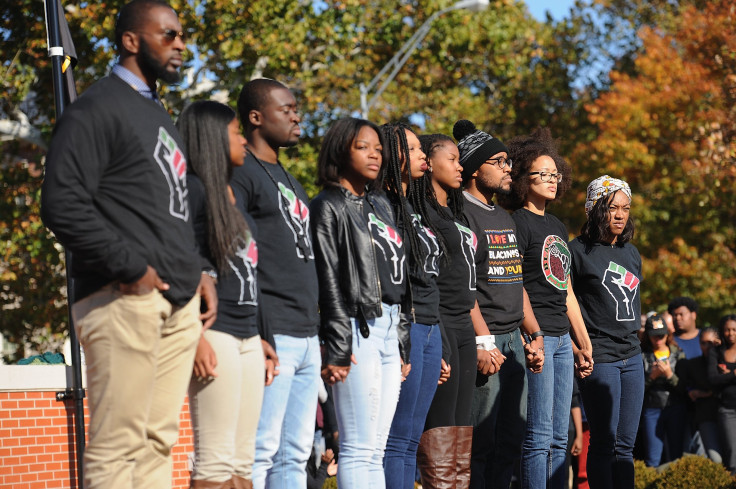College Racism Is Making Black Students Sick, New Study Finds

The psychological effects of racism on black college students at prestigious universities is “one of the most urgent concerns in education today,” according to new research of high-achieving students at Vanderbilt University in Nashville, the Tennessean reported Thursday. The research focuses on the academic experiences of students majoring in science, technology, engineering and mathematics, also known as STEM.
Students of color, particularly African-Americans, told researchers they experienced panic attacks, seizures, hospitalization and hair loss because of race-related stressors. But when they attempted to report incidents of racism to school officials, some were told to “suck it up and survive,” said Ebony McGee, a co-author of the study and assistant professor of diversity and urban schooling at Vanderbilt’s Peabody College.
"We have witnessed black students work themselves to the point of extreme illness in attempting to escape the constant threat...of perceived intellectual inferiority," wrote McGee and study co-author David Stovall, associate professor of African-American studies and educational policy studies at University of Illinois at Chicago.
Being told to just deal with it “is a consistent message that black students hear," McGee said, according to the Tennessean. “Something is wrong with the system, and we just can’t put the onus on the student."
Student protests, over incidents of racism that they claimed were insufficiently addressed by administrators, spread throughout the U.S. last fall and garnered national attention. At the University of Missouri, students launched sit-ins and a hunger strike over allegations of racial slurs against African-Americans and swastika vandalism on campus. At Yale University in Connecticut, black students complained about a college faculty member's message encouraging white students to wear Halloween costumes, even if they might offend students of color and ethnic minorities.
As their populations increased in the U.S., black, Hispanic and Asian students have increased their presence at majority white colleges and universities. In the fall of 2013, there were roughly 20.3 million students enrolled at degree-granting postsecondary institutions, according to the National Center for Education Statistics. Roughly 56 percent of those students are white, and 38 percent are considered U.S. racial or ethnic minorities, according to federal data.
The aim of Vanderbilt's study on the effects of racism on students of color was not to point the finger at anyone or to diminish the academic stresses that white students face, McGee said, according to the Tennessean. But she does want institutions to consider race-related support systems that complement the ones that already exist.
“I want a more nuanced look at how black students should heal in the face of these racialized experiences," McGee said. “Counselors know how to talk to a student who just went through a relationship breakup…Race-related stress has been under-explored.”
© Copyright IBTimes 2024. All rights reserved.












